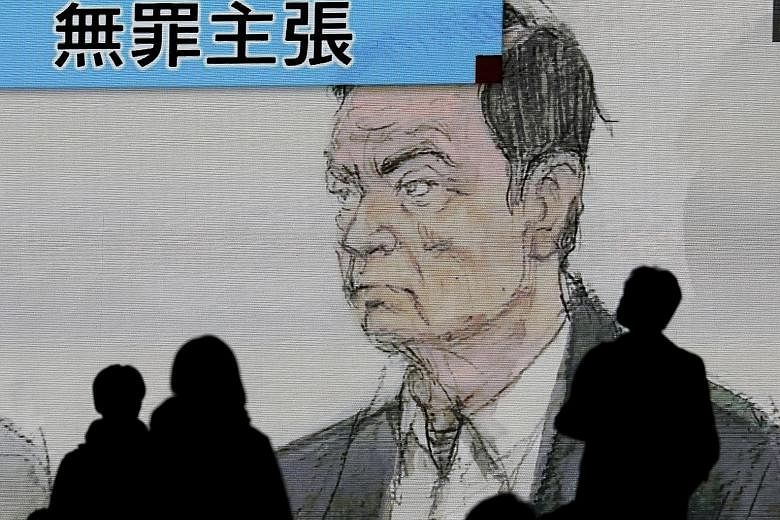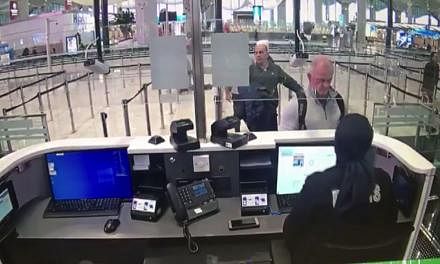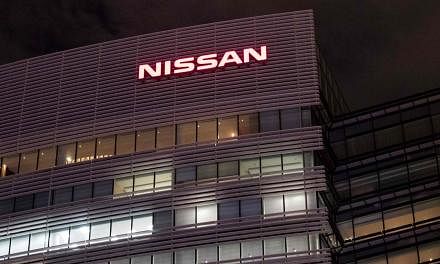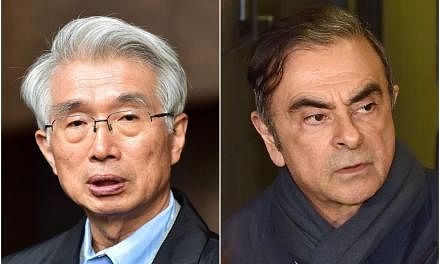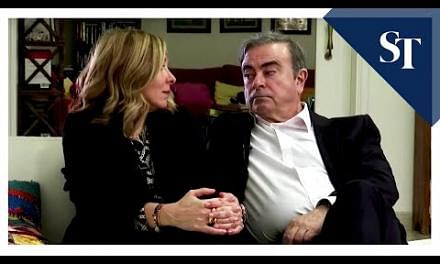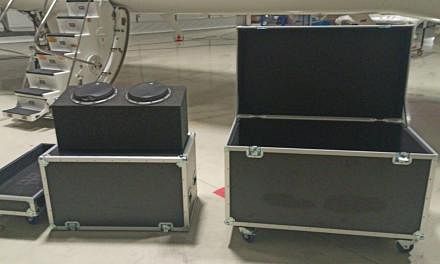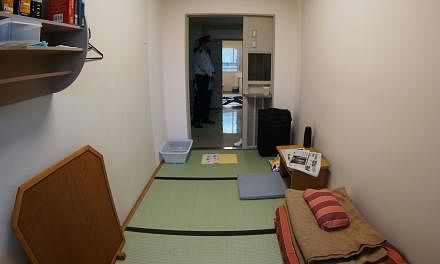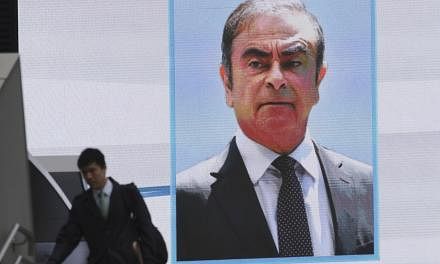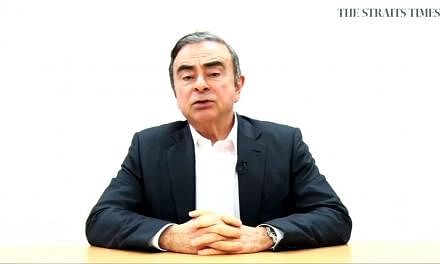Carlos Ghosn, the auto industry titan accused of financial misconduct, protested his innocence yesterday in his first court appearance following 50 days in detention.
The former Nissan chairman, reading from a statement in English, told the Tokyo District Court: "I am innocent of the accusations... against me. I have always acted with integrity and have never been accused of any wrongdoing in my several-decade professional career.
"I have been wrongly accused and unfairly detained based on... unsubstantiated accusations."
Ghosn, 64, was first arrested on Nov 19 on the tarmac of Tokyo's Haneda Airport for allegedly understating his salary by 5 billion yen (S$63 million) over a five-year period ending March 2015.
He was served two more warrants: one on Dec 10 for the alleged under-reporting of his compensation by another 4 billion yen over the next three years ending March 2018; and the other on Dec 21 for suspected aggravated breach of trust for allegedly transferring obligations on his personal investment losses to Nissan.
His detention is slated to expire on Friday, at which point prosecutors must decide whether to indict him for aggravated breach of trust.
Ghosn, who was sacked by Nissan and has been charged with financial misconduct, may be allowed to apply for bail, but may also be served new arrest warrants.
The case has drawn massive public attention, with 1,122 people standing in line yesterday for the 14 public gallery seats available.
Ghosn appeared visibly thinner in court, with his hair greying, dressed in a dark suit, white shirt and sandals. He was led into court in handcuffs and with a rope around his waist.
Yesterday's hearing was called at the request of Ghosn's lawyers, who argued that there are no grounds for his lengthy detention. But presiding Judge Yuichi Tada said the evidence before the court showed there might be "reasonable grounds to believe the allegations".
The judge added that detention was necessary as Ghosn presented a flight risk, while there was also a chance that he may contact people to destroy evidence.
Ghosn has had rock-star status in Japan, due to his pulling Nissan back from the brink of collapse after he joined the company, first as chief operating officer in 1999, when he instituted drastic reforms.
He told the court yesterday that he had wanted to be paid in US dollars, but was told by Nissan that this was not possible and that he had to be paid in Japanese yen.
It was due to his concerns over the yen's volatility against the US dollar that he entered into foreign exchange contracts, he said, but the financial crisis in 2008 caused Nissan's shares to plummet by more than 80 per cent from their peak.
With the bank asking for more collateral, it meant the "stark choices" of either resigning and getting his retirement pay, or asking Nissan to temporarily take on the collateral so long as it did not come at any cost to the company.
"A captain doesn't jump ship in the middle of a storm," he said. His lawyer, Mr Motonari Otsuru, a former chief of special investigations at the Tokyo District Public Prosecutors Office, said there was a paper trail detailing this agreement.
A sum of US$14.7 million (S$20 million) that was paid to Saudi tycoon Khaled Juffali is also under scrutiny, but Ghosn said this was for work done to help Nissan restructure in the Middle East.
Further, on the under-reporting of his pay on financial documents, prosecutors allege that Ghosn had deliberately deferred his compensation until retirement, possibly to avoid flak over his hefty salary.
To this, Ghosn said: "I never received any compensation from Nissan that was not disclosed, nor did I ever enter into any binding contract with Nissan to be paid a fixed amount that was not disclosed." He added that draft proposals would have been reviewed by lawyers.
Japan's criminal justice system, which has a conviction rate of over 99 per cent, has come under the spotlight with the prolonged detention - a manoeuvre that defence lawyers have criticised as a "way of taking hostage". Mr Otsuru said at a news conference that bail for his client is unlikely before the first trial hearing, were Ghosn to be charged with aggravated breach of trust. This could be six months from now, he added.
Amid speculation of a rebellion in the ranks of Nissan, given the drip-feed of leaks to the media that appear to be intended to tar his name in the court of public opinion, Ghosn yesterday nonetheless said that he has a "genuine love and appreciation for Nissan".
"I believe strongly that in all of my efforts on behalf of the company, I have acted honourably, legally, and with the knowledge and approval of the appropriate executives inside the company - with the sole purpose of supporting and strengthening Nissan and helping to restore its place as one of Japan's finest and most respected companies," he added.
